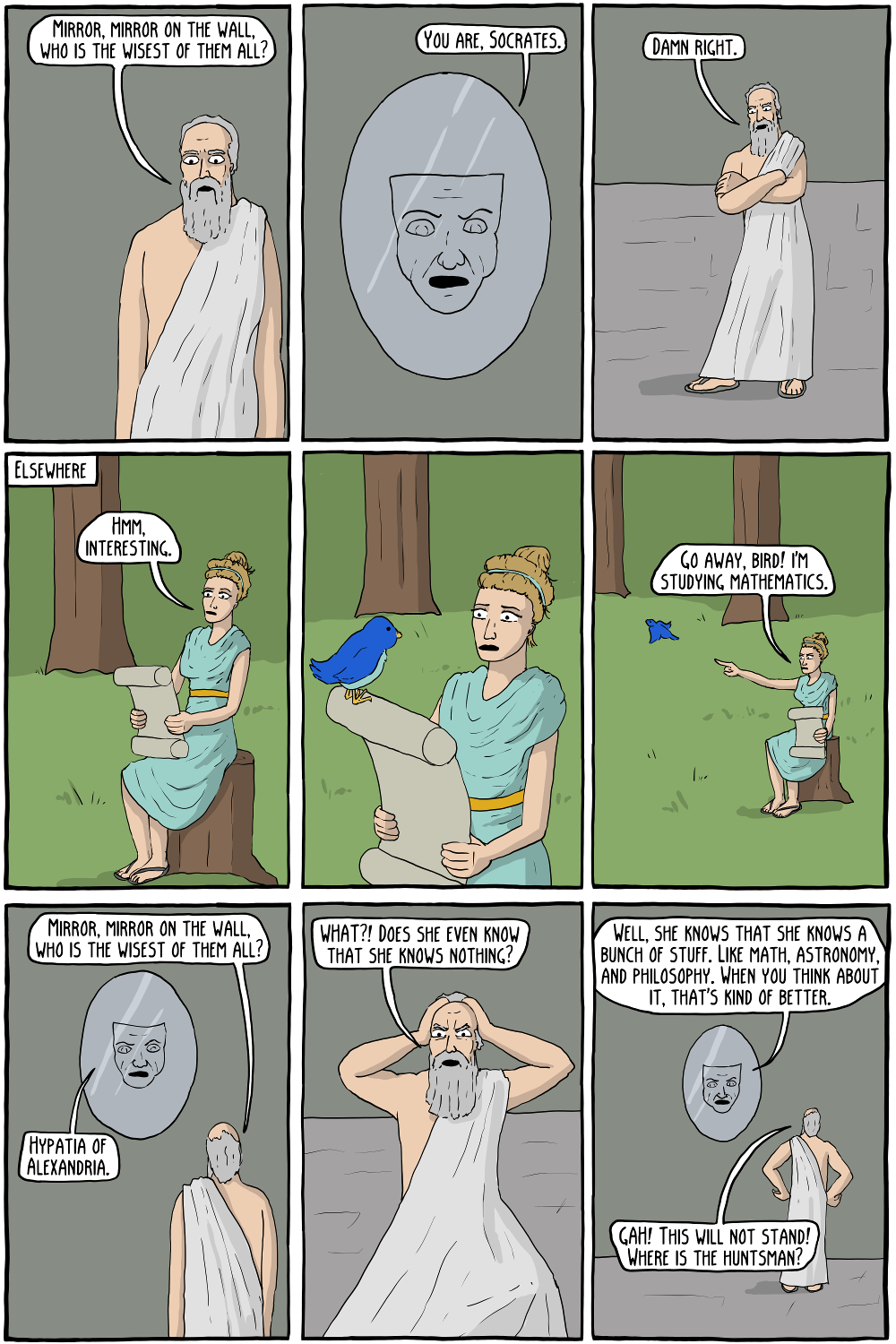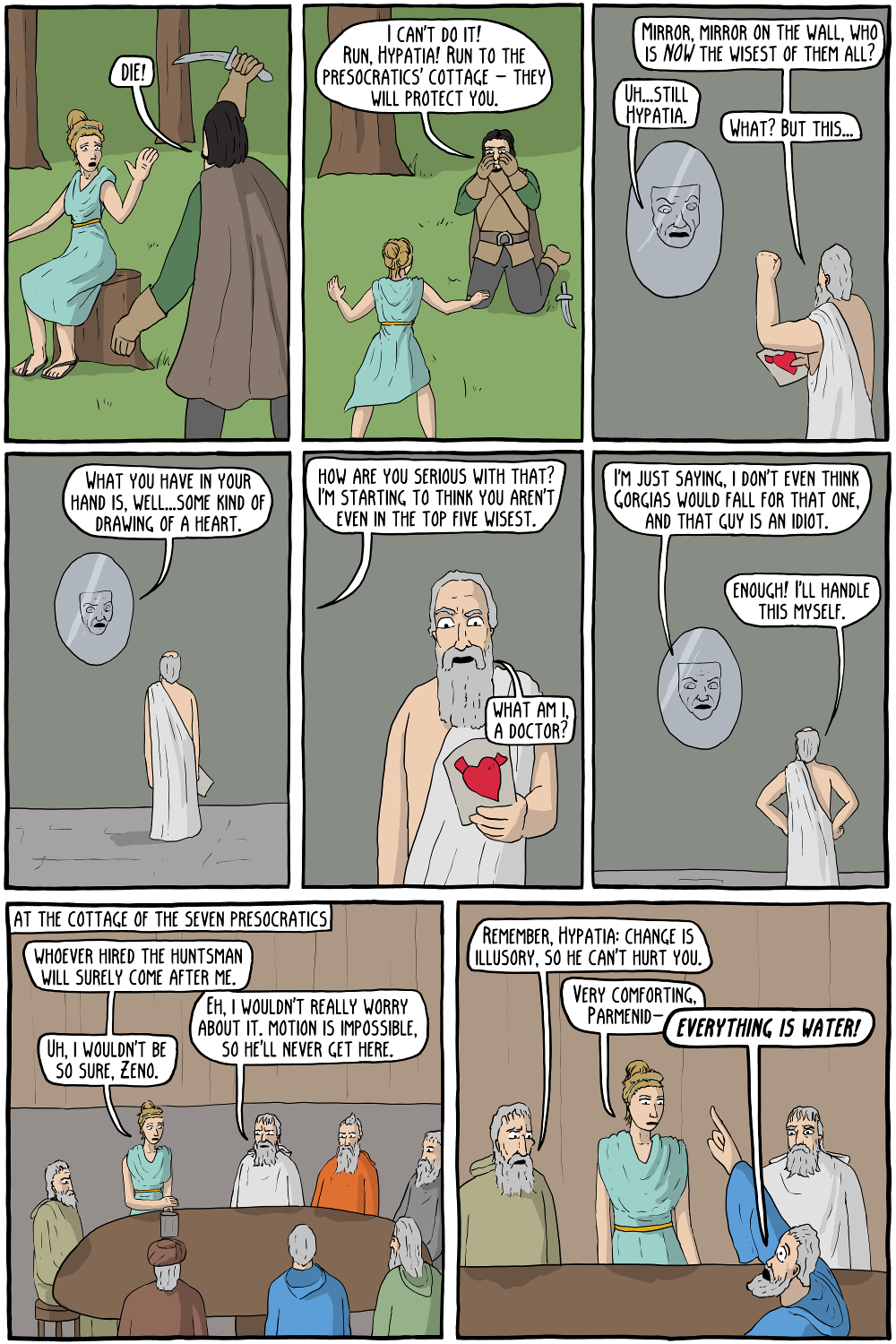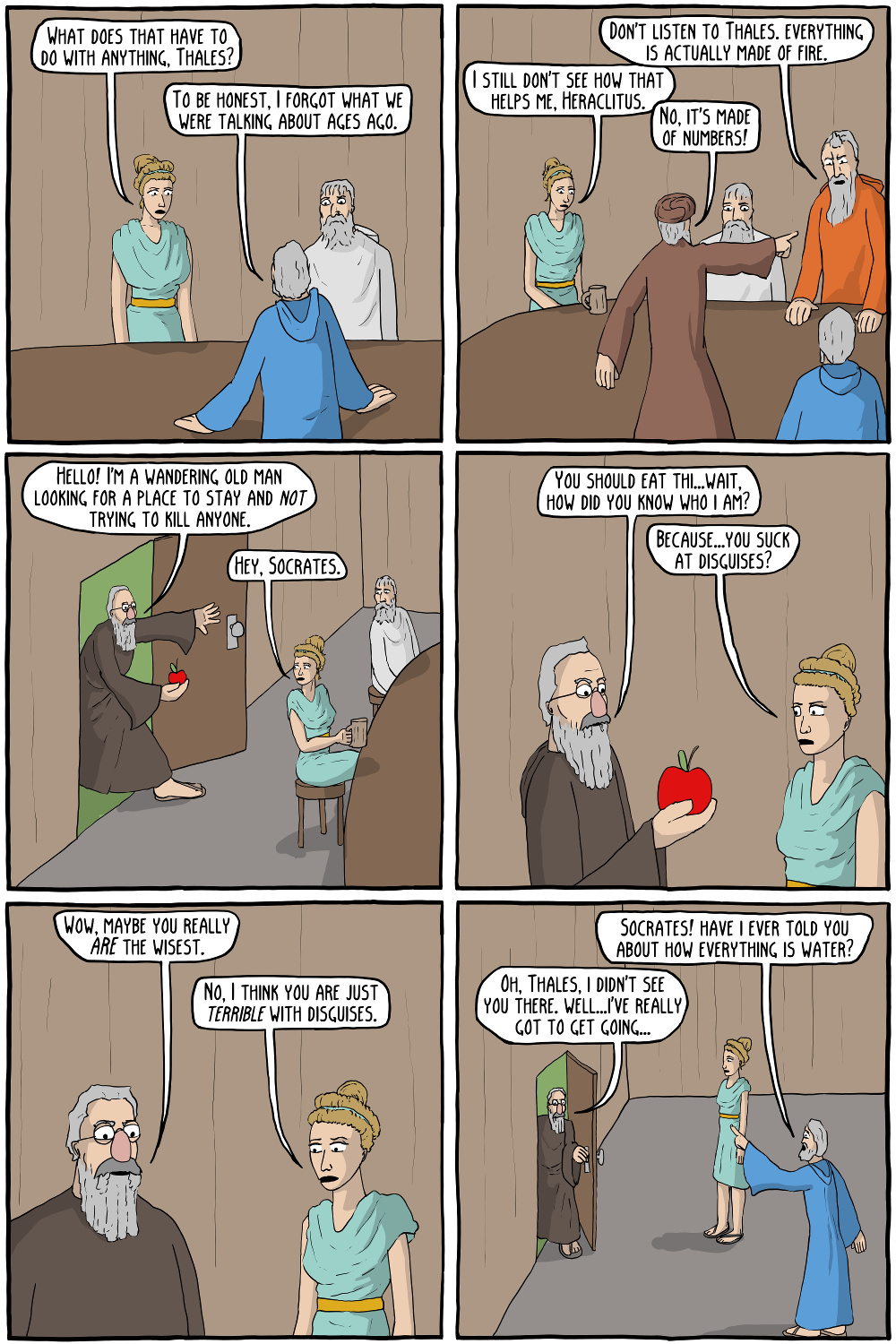


Hypatia of Alexandria was a fifth century Greek mathematician, philosopher, and astronomer, who lived in Egypt (which was part of the Roman Empire at the time). None of Hypatia's writings have survived, so we know little of her thought, but she was educated in Athens in the Neoplatonist tradition, and most likely taught Aristotle, Plato, and Plotinus, in addition to Mathematics. There are a wide array of different accounts of her, some calling her the greatest philosopher and teacher of the age, while other later Christians described her as a sort of Pagan witch (with most historians believing something closer to the former). She was murdered by a Christian mob as part of a feud between Orestes, the Roman Governor of Alexandria, and Cyril, the Bishop of Alexandria.
Socrates in largely parodying the story where he was told by the Oracle of Delphi that he was the wisest man in Athens. After extensive interviews with the other wise men, he concluded that she was right, only because he knew that he knew nothing, whereas they did not.
The Presocratics are the philosophers in Greece before Socrates. Typically very little is known about them, since we only have fragments of their writings.
Thales is possibly the earliest philosopher we know of in the Western tradition, best known for positing that everything was composed of a single substance, water. It sounds funny, because we know that water is composed of smaller parts today, but we might say something like "everything is composed of a single substance: matter".
Heraclitus is an ancient philosopher, probably best known for the phrase "you can never step into the same river twice". He thought everything was made of fire, and like Thales, we can charitably interpret this in a modern way by saying that everything is made of "energy". Some people even go so far as to say that he was the first to describe the principle of the conservation of energy, because he said that fire changes from thing to thing, but always maintains the same ratio. That's a bit of a stretch though.
Zeno of Elea was best known for his paradoxes, many of which proved that motion is impossible. His paradoxes are still debated about to this day.
Parmenides believed that reality was timeless, uniform, and necessary. It then followed that change was actually impossible, since reality can only be as it is, so any change that we see is an illusion.
Pythagoras was an ancient philosopher and mathematician, who believed everything was composed of numbers themselves.
The other two Presocratics that didn't have any lines were probably Democritus, who believed that reality was only "atoms and the void", and let's say...Xenophanes, who I know literally nothing about.
Permanent Link to this Comic: https://existentialcomics.com/comic/95
Support the comic on Patreon!










